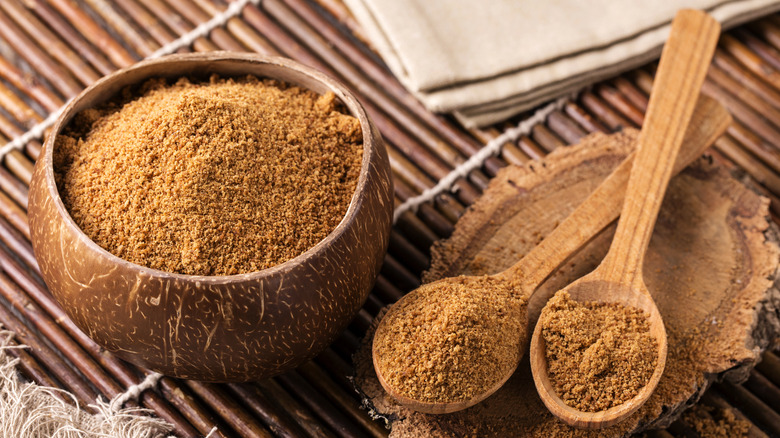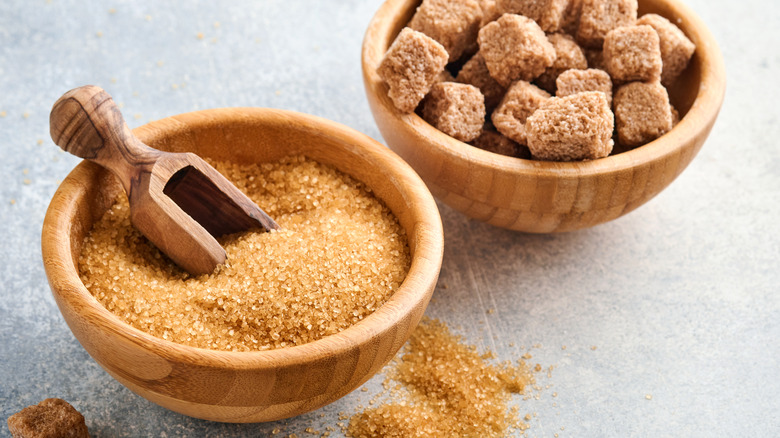How Easily Can You Swap Coconut Sugar And Brown Sugar?
Over the last few years, Americans have been fighting a sugar epidemic. While the American Heart Association recommends no more than 9 teaspoons of sugar for men and 6 for women per day, statistics show that actual sugar consumption is much higher in comparison. According to the CDC, adults over 20 consumed an average of 17 teaspoons of sugar a day between 2017 and 2018. Nowadays, more Americans are trying to cut back on sugar intake, thanks in part to growing awareness and a spike in cases of diabetes, per Food Navigator.
While people try to steer clear of sugar, however, it's not all sugars they're avoiding. As refined sugars fall from grace, natural sweeteners have seen a rise in popularity. And when it comes to alternatives for refined white and brown sugars, options like coconut sugar are a sought-after substitute. For one, The Washington Post notes studies that find coconut sugar to rank lower on the glycemic index at 54, compared to white sugar at 65, meaning that coconut sugar has a lesser effect on blood sugar levels in comparison.
According to The Spruce Eats, coconut sugar also happens to be the closest to brown sugar in terms of appearance and taste. So while it's an excellent natural substitute for refined brown sugar, which is essentially just white sugar with molasses, there are a few things to keep in mind when using this swap.
Coconut sugar is pretty close to brown sugar — except for one key difference
It's often assumed that coconut sugar has the flavor of coconut, but that's not necessarily the case. Coconut sugar is extracted from the sap of coconut palm tree flowers and is more akin to the way honey is produced (via Foods Guy). It tastes more similar to light brown sugar, with its caramel-like flavor and traces of nuttiness, than dark brown sugar, which is stronger on molasses. For those looking for natural substitutes for light brown sugar, in particular, coconut sugar is an easy alternative that won't compromise on taste.
As with all substitutes, however, there are a few things to keep in mind. For one, coconut sugar is less sweet compared to brown sugar. Healthline also points out that coconut sugar has less moisture, which may affect the texture of your recipe by making it drier. While the site says that brown sugar can be swapped with coconut sugar using a 1:1 ratio, it's a good idea to add extra fat in if you'd like to make up for that lost moisture.
Additionally, because coconut sugar is yet to be mainstream in baking, you're kind of working in uncharted territory. This is why Foods Guy suggests that it may be safer to use coconut sugar as a daily sweetener substitute for brown sugar in things like coffees and oatmeal rather than in baking, which requires more accuracy and reliability of texture and consistency.

